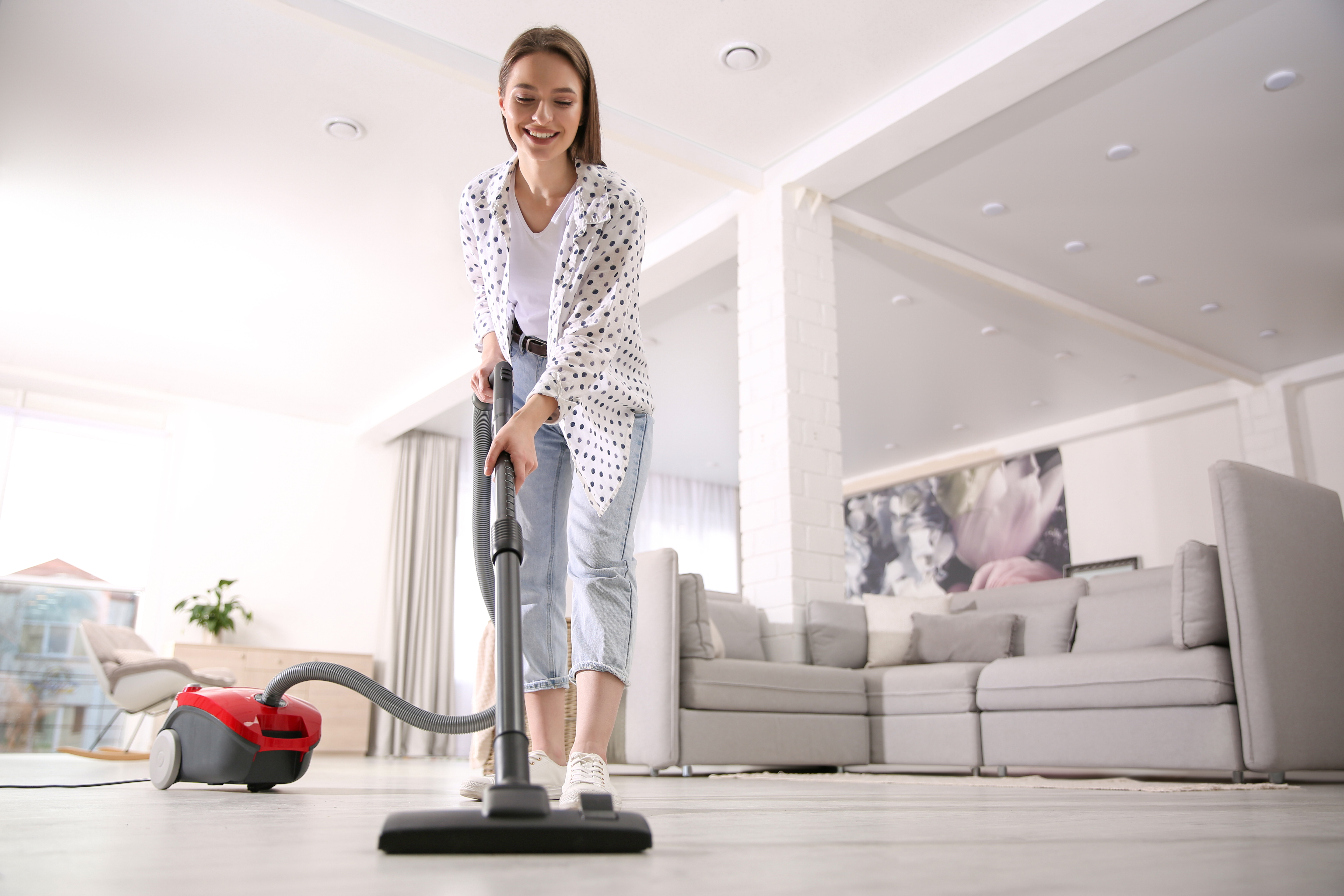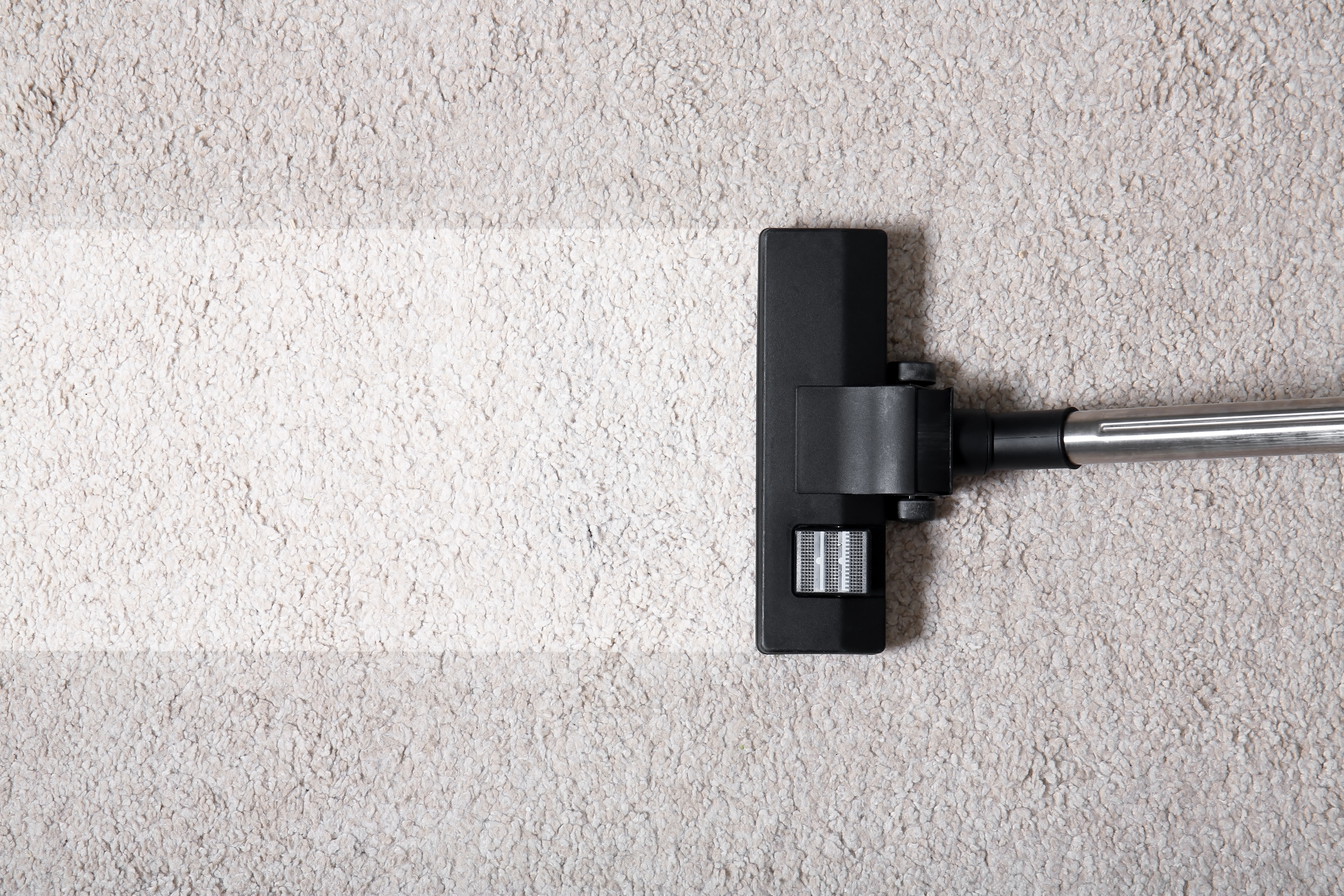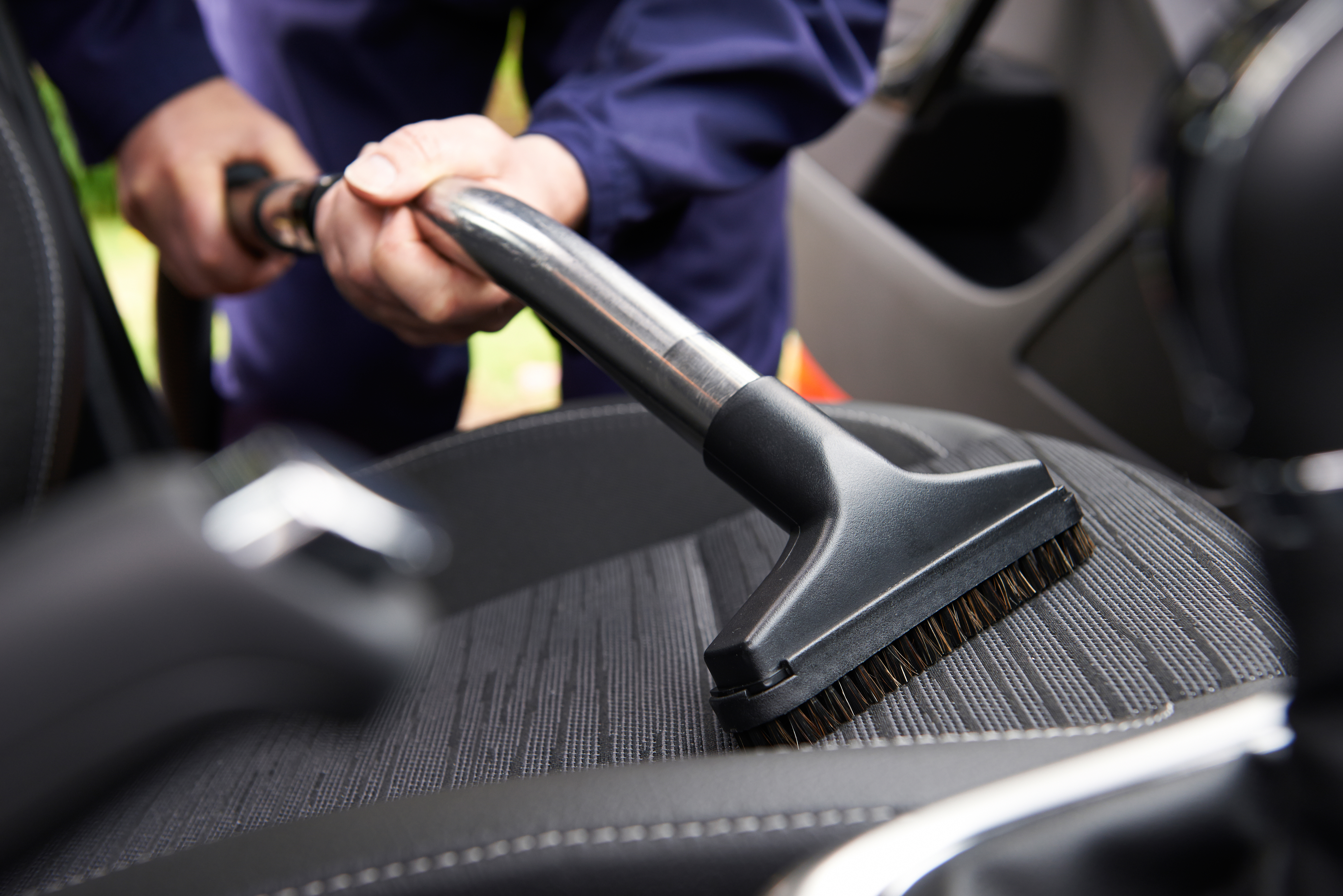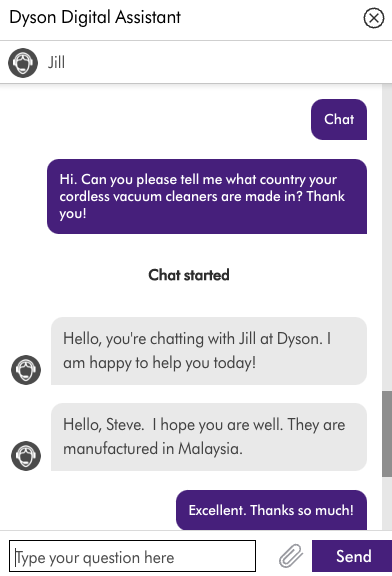Are any Vacuum Cleaners not made in China
When you think of the best American vacuum cleaner brands, what names come to mind? There’s Hoover, of course. James Murray Spangler invented the first upright vacuum cleaner in 1908 and he sold his patent to his cousins, Susan, William, and Herbert S. Hoover. The Hoover Company, based in North Canton, Ohio, became an American success story.
Or you might think of Eureka. They were founded in 1909 in Detroit, Michigan and competed with Hoover, eventually producing the Eureka Model 9 which sold 1 million units in three years.
Or you may think of Dirt Devil, which was originally founded in 1905 in Cleveland, Ohio as Royal Manufacturing and were the first to build a vacuum cleaner in 1955 with a cyclone system. Around 1984, they introduced the “Dirt Devil” brand, which revolutionized the handheld vacuum cleaner.
Or maybe you think about Oreck. In 1963, David Oreck started his company in Duluth, Minnesota to sell vacuum cleaners by mail. Oreck vacuum cleaners became a popular model among hotels, where its lightweight design made it popular. Many of us remember David Oreck from his infomercials; he was the epitome of an entrepreneur who made it big with a great product and even greater persistence and hard work.
What would your reaction be if I told you that Hoover, Eureka, Dirt Devil, and Oreck are all owned by China now? Not just “made in China”, but “owned by China”.
What??!
Yes, that was my reaction too. But it’s true.
In 1986, the Hoover family sold their business to the Chicago Pacific Corporation, and then it was acquired by Maytag Corporation in 1989. Maytag was acquired by Whirlpool in 2006, and then Whirlpool promptly sold the brand to Techtronics Industries Co. Ltd (TTI) in 2007. TTI was based in Hong Kong, but China’s dismantling of Hong Kong independence was already well underway since China completed its takeover of Hong Kong in 1997.
Eureka was purchased by AB Electrolux of Sweden in 1974. It was then acquired by Midea Group, based in Guangdong, China, in 2016.
Like Hoover, Dirt Devil was acquired by TTI in 2003.
David Oreck sold his company in 2003 to a private equity firm. That firm proceeded to run the company into the ground and eventually declared backruptcy and put the company up for auction in 2013. The Oreck family tried to buy the brand back, but was outbid by–you guessed it–TTI. TTI also acquired Vax, a popular UK-based brand.
So why do I still see these brands being sold?
Today, TTI still sells models under each brand name, taking advantage of brand equity that’s been built up in some cases over a hundred years. The average American consumer has no idea that these four brands are all owned by China–three of them by the same company. And that’s being done very deliberately. They want you to think you’re buying the same quality of vacuum cleaner that you remember as a child, or that your parents or grandparents used. But of course, that’s not happening.
In many cases, you’re getting a cheap piece of machinery that’s going to break down within a few uses. And even if you’re lucky enough to get a model that doesn’t break down, there is something downright off-putting about using a product that was probably assembled under harsh conditions and poor environmental practices. And of course, most of the price you pay for it will go to the coffers of China’s dictatorship.
Are any vacuum cleaners still made in the USA?
Yes, there are. You may need to prepare yourself for some “sticker shock”, though, as some of the best ones can get on the pricey side. But “you get what you pay for” applies here. If you do a lot of vacuuming, say for your home office, a small business, or a church, you’ve probably already been through a number of “made in China” vacuums that suck (not in the way they should) and that need replacing every 3-4 years. Some of these models are like vacuum cleaners of yore, where they’d last for decades without fail.
There are still some models of TTI brands made in the USA. For example, as of the time of this writing, this Oreck vacuum cleaner and this Hoover Commercial model appear to still be made in the USA. Buying them may support some factory workers in the United States, but of course most of the profits will go to the China-based executives at TTI, as well as the government they pay their hefty corporate taxes to. It’s somewhat ironic how the tables have turned and at how corporate greed has put American workers at the mercy of executives in China.
What about other American brands?
Sadly, the biggest American brand, Bissell, moved all of its production to China in 2003 although there were reports that after the 2019 tariffs it was moving some production to Vietnam, Malaysia, and Mexico. I have yet to see a Bissell that’s not made in China “in the wild”, though (please leave a comment if you see one).
Shop Vac is another All-American brand you may know-it was founded in Williamsport, PA in 1953. But it’s not American anymore–at the end of 2020 it was purchased by GreatStar USA, which sounds great until you find out it is part of Hangzhou GreatStar Industrial Co. Ltd.
Simplicity Vacuums (and their sister company Riccar) had been on a lot of “made in the USA” lists. For years, these vacuums were made out of the SImplicity manufacturing facility in St. James, Missouri but it seems that more and more of their models are being sent to China and worse, they’re not very transparent about which models are made in China and which aren’t.
ProLux was another brand that I’ve seen on a few “USA made” lists, but they are made in China as well.



1. Dyson

11/26/22 UPDATE – June 1 has come and gone, and Dyson Customer Service is still confirming that their machines are being manufactured out of Malaysia, so you can continue to buy with confidence.
4/10/22 UPDATE – Not so much an update here as sharing something I missed with my update a few weeks ago. According to this Reuters report, Dyson’s supplier ATA IMS Bhd will continue to manufacture Dyson vacuum cleaners until June 1, 2022. Which likely means that Dyson is scrambling right now to find alternative manufacturers. And you know who is salivating at the chance of taking over their business.
This episode shows clearly why China is dominating so many manufacturing sectors. While I wouldn’t say that Malaysia is a shining example of a country with freedom of speech, note that whistleblowers within ATA are able to tell their stories to Reuters, whether it’s about unfair conditions at their workplace or the treatment and beatings they receive from local tinpot law enforcement.
Does anyone really believe that working conditions in the People’s Republic of China are so much better than Malaysia? No, but what you do have is a totalitarian regime that has 100% control of information. Everyone is conditioned from birth to believe that anyone who speaks one word against The Party is a heretic. All communications, including cell phone conversations and social media, are monitored so that anything that might reflect poorly on the CCP is quickly silenced.
And like the CCP, American and European companies care more about their image than about actual working conditions that go into their products. And so they’ll turn a blind eye to CCP atrocities.
Let’s hope that if Dyson is exiting Malaysia, that it’s finding diverse supply chains across multiple countries and not putting all its eggs into China. We’ll find out shortly after June 1.

3/22/22 UPDATE – Dorothy mentioned in the comments that her Dyson vacuum cleaner was made in China. I did some research and I did see that Dyson did in fact cut their ties with their biggest contractor in Malaysia due to unfair labor practices. However, I could not find any information of whether or if Dyson officially replaced its contractors in Malaysia with contractors in China. When I chatted with their customer service team on 3/22/22, they continued to maintain that their products are made in Malaysia.
This may be a situation where they are in flux–for example, perhaps they have manufacturing facilities in China that serve the China market but are leaning on them while they deal with their issues in Malaysia. Bottom line–especially in the coming months, make sure you CHECK THE BOX to make sure your Dyson is not made in China (assuming you’re buying from a brick and mortar store). If you’re buying online, call the retailer (or ideally Dyson themselves) and get ON THE RECORD that the products are not made in China. This way, if they do send you a made in China model, you can always send it back–at their expense.
Dyson is a British company that was established in the United Kingdom by James Dyson in 1991. In his 20s, James Dyson bought a Hoover Junior vacuum cleaner which lost suction after being used. He had the idea to develop a vacuum cleaner based on a cyclonic system, where centrifugal forces are used to separate larger particles and smaller particles into chambers rather than having them clog a filter or a dust bag.
Here are some of their more popular models. They’re all made in Malaysia. Dyson does sell upright vacuum cleaners and hardwood floor vacuums, but I’ve focused mainly on their cordless vacuums, which they’re most famous for.
Dyson V15 Detect: This is Dyson’s “most powerful and most intelligent” model. It’s got some amazing technology that uses a laser to detect dust on hard floors and a sensor that gives you “scientific proof” of how deeply you’ve cleaned. They’re hard to find in stock, so buy it from Dyson directly or from a retailer like Best Buy or Lowes (avoid Amazon whose third-party sellers will gouge you).
Dyson Outsize Vacuum Cleaner: This is Dyson’s most powerful cordless vacuum cleaner, with 18 cyclones, up to 120 minutes of run time, and a bin capacity that’s bigger than any other Dyson model.
For “more affordable” options from Dyson, you can go with the Dyson V11 Animal, the Dyson Cyclone V10, or the Dyson V8. Generally speaking, the more expensive the model the longer the run time, the better the suction power, and the more accessories it’ll come with.
2. Miele
Miele is a German-based company that makes a great German-engineered vacuum cleaner.
Unfortunately, Miele is doing what a lot of brands in the US and the EU do–they continue to manufacture their high-end models out of their own country, but they outsource their cheaper product lines to China.
It’s confusing trying to figure out where different lines are made–this is likely intentional on the part of Miele, who want you to believe that there’s no difference (and in fact, because Miele owns their factories in China there may not be much of a difference in terms of quality–but there sure is a difference in terms where your money is going).
Compact C1 Pure Suction – made in China
Compact C1 Turbo Team – made in China
Complete C2 – made in China
Classic C1 – Made in Germany – A good basic model that handles bare floor and low pile carpet. If you’re seeing a lot of price gouging on Amazon, try a retailer like Bed Bath and Beyond.
Blizzard CX1 – made in Germany – Bagless canister vacuum that’s lightweight. Here’s the link on Bed Bath and Beyond.
Complete C3 – Made in Germany – This is their top of the line series.
It seems that some Amazon customers are providing conflicting information about whether their model is made in Germany or China. This may be because Miele is changing where different models are made over time, or it may just be confusion over the product naming, something that seems common in the vacuum cleaner world. I’d suggest visiting a brick-and-mortar retailer like Bed bath and Beyond so you can check the box (or call them and ask them to check the box) just to be sure the unit you’re buying was not made in China.
3. Samsung
This is a surprising find for me. I knew Samsung made consumer electronics (in fact, they make the best phone not made in China and one of the best TVs not made in China), but I had no idea they were in the vacuum cleaner business.
They do have several models of stick cordless vacuum cleaners–like Dyson, they work as handheld vacuum cleaners, but you can attach a stick to make it into an upright.
Even more surprisingly, reviews say that they have cyclonic suction power that rivals Dyson (some reviews say they are even more powerful), and they are generally cheaper. They have a 5-layer filtration system and are easy to clean. All models comes with several basic accessories, including a mini motorized tool for removing dust and pet hair from furniture, a combination tool for picking up dirt from window frames and tabletops, and a crevice tool for reaching hard-to-reach places. They all have a 0.8 liter dust bin (about 4 cups of dirt), which is larger than my Dyson.
And better yet, according to the Amazon product page they’re all made in Vietnam.
Jet 60 (VS15A6032R7/AA) – This is their most lightweight design, weighing in at only 5.1 pounds. It has 150 air watts power, 0.8 liter dust bin capacity, and up to 40 minute battery life. Buy it directly from Samsung, or from Walmart.
Jet 70 (VS15T7032R4/AA) – This model has similar specs to the Jet 60, but introduces a digital display. Buy it from Samsung, Walmart, or Amazon.
Jet 75 (VS20T7536T5/AA) – This model increases the battery life to up to 60 minutes, and is more powerful with up to 200 air watts. It adds a soft action roller brush for cleaning wood or linoleum floors, which the Jet 70 does not have. Again, you can get it at Samsung, Walmart or Amazon.
Jet 90 (VS20R9046T3/AA) – This model has the same specs as the Jet 75 (200 air watts, 60 minute battery life), but has a telescopic pipe that allows you to reach more places. It also has a more advanced self-standing charging station that some will find more convenient than a wall-mounted charger and also allows you to charge a spare battery (included). It’s also available at Samsung, Walmart or Amazon.
4. Kirby
The Kirby Company started selling vacuum cleaners in 1935. competing against Hoover and Eureka. You may not have heard of them because officially, they only sell door-to-door, although you’ll see some enterprising salespeople listing products on Amazon.
All of their vacuum cleaners are built in either Ohio or Texas. These vacuum cleaners are powerhouses; many models built between the 1930s to the 1960s are still in operation, and the factories still supply parts for repairing them. Contrast that with made in China models that are build for obsolesence and destined for a landfill in a few years.
Here’s an Amazon listing for a complete Kirby Avalir Vacuum Cleaner Kit. As the listing says, this workhorse was built in the USA to last and last. These are all third-party sellers, so be sure to verify with the seller that they honor the Manufacturer’s Warranty.
5. Metrovac
Metrovac doesn’t pull any punches–right in their site’s logo they have an American flag and say “Deliberately Made Better in the USA”.
Metrovac has been around since 1939, where they started as “The Metropolitan Vacuum Cleaner Company”. They were the first to introduce a handheld vacuum cleaner, as well as a automative vacuum cleaner that plugged into the car’s cigarette lighter. The seem to specialize in “hitting ’em where they ain’t”; in other words, instead of trying to compete with general vacuum cleaner companies, they specialize in niche applications like vacuums for computers and cars.
I especially like their dusters; I’ve always been astounded by the utter waste of those “compressed air” cans that end up filling up landfills. Their dusters are just as powerful and after just a few uses they’ll pay for themselves.
Do you know of other vacuum cleaners not made in China worthy of mention here? Let us know in the comments!
- Tags:
- vacuum
- vacuum cleaners

Thank you so much for your time and effort to research. I am often overwhelmed when I try to hunt down where products are made these days. This is astounding that not only are many brands mentioned here made in China, but owned by China. I do not even know how to investigate to the degree that you did.
Here in Europe, there are still some brands that produce (some) models in Europe.
Miele, as you mentioned produces most models in Europe.
Bosch, Siemens, Thomas and Vorwerk offer several made in Germany models.
Philips offers some made in Europe models.
Rowenta offers some made in France models.
Thank you some much for all this precious information. Please keep up the great work.
Merry Christmas
Could some please update this artical? I ask cause I have a dyson and I only need to replace one part. Was informed it’s now made in china. So waiting on a boat to bing it over this should arrive Tuesday if I am lucky however not Guaranteed and china just had another outbreak from COVID so things there are shutting down.
Contact Dyson directly to learn that Dysons are NOT made in China, the part will come from Dyson in the country that you live in.
DYSON IS A CHINA-OWNED COMPANY I BELIEVE
Actually, Dyson is technically a Singaporean company. In 2019 they moved their headquarters from the UK to Singapore.
Don’t forget Henry vacuums the last mass production British vacuums, used by many offices and shops especially popular in the UK, Ireland and Portugal it said on BBC’s Inside the Factory.
The article states that Prolux is Chinese made; the write-up on the Prolux Terravax that I am interested in says Taiwan. Does anyone have one that can identify where made?
Thanks for your question, John.
Every listing I see for the TerraVac indicates that it’s made in China. The only model I see that seems to be made in Taiwan is the Prolux 7000 Upright. But even so, the reviews that state that they’re made in Taiwan date back to 2014-2015, so who knows if Prolux is still manufacturing there.
https://amzn.to/3KaisQL
I’ve reached out to Prolux to ask them which models (if any) are still made in Taiwan.
I contacted MetroVac and learned their vacuum parts are made in China.
I got a Miele and didn’t check where it was made because my European friends assured me that Miele was still all German. I ended up with a $499 piece of crap from China. Now I need a new vacuum and I despise feeling forced to buy from China. I have two bunnies and many allergies in my house. I’m glad to spend the money on something that’s worth it.
I have a Miele as well, which is made in Germany. The entry level types are all made in China. You really have to check the box before buying or send it back.
Same situation with Bosch.
Politicians stand on the Capitol steps, beat their chests and say:… “Look what we have done for you! We’ve raised ‘minimum wage’ .. and forced companies to pay it, regardless of the value that each employee brings to the table.. we’ve forced needless regulations and many guidelines on to businesses, all costing them great dollars (which might have very well gone into salaries and jobs here in the US, but we’d rather have you pay those who contribute to our campaigns and benefit most from our actions, instead!). And all of this is for YOUR benefit!” That’s what politicians claim.
And the companies say .. “Politicians keep pouring it on .. but we have to remain in business.. We have to produce Some kind of a profit for our investors.. We have to remain competitive… So there’s really no choice but to run off to other places where they don’t charge a lot of money for production and the employees (if you can call them that) work in incredibly oppressive and dangerous, soul-sucking conditions.”
And so while those same politicians who shriek “Look what we have done for you, in order to procure your vote AND campaign dollars from those whom will benefit from many of our ridiculous regulations.. !” Still know they will not be able to enforce many of the policies they boast about. But it sure sounds good in a marketing sense.
It’s a shame that the two sides couldn’t get together to work out reasonable compromises that would protect employees.. as well as profits. It’s still a ‘mystery’. But one thing we do know now.. is that even the best of well-intentioned laws and guidelines won’t mean a thing .. if you can’t enforce them… in Other Countries. Meanwhile.. .we’ll continue to suffer through vacuums… that don’t suck.
SEBO are excellent vacuum cleaners made by a family owned German company.
I second your recommendation. Sebo vacuums are built to last. I’ve used the x4 model for years for my domestic cleaning business. They’ve been superb. They cost the same as a Dyson when new and they outlast the Dyson many times over! I’ve cannibalised mine. The base with the motor detaches from the upright section which houses the bag, which lasts for ages because the dust is compacted, whereas with a bagless vacuum, like a Dyson, you’re forever emptying the dust and choking on it in the process. Long live the German Sebo!
I love my Dyson. But the only reason I won’t buy another multi floor ball vacuum is the beater bar stops working when vacuuming carpet. Plus you have to replace them every year costing up to $80. I wish Dyson would improve this solution. Cause other than that it’s a great machine at a reasonable price.
I have been with Tidewater Sew Vac in Virginia for 30 years and have personally repaired over 43,000 vacuums and found this article very accurate. I would also add that you can Google up your local vacuum cleaner repair store and ask those that have had these machines apart and can see what was made in China , Mexico,Hungary or Germany. The Riccar Company has many models fabricated and assembled in St James Mo, I toured the factory myself. Some of the parts are globally sourced though. Another great machine we sell is the German made SEBO. As of this writting,100% German. Thank you for the great article!
In 2020 my wife and I bought a Sebo Airbelt E2 Turbo to replace our 20 year old Eureka Oxygen. The dealer was going to drop Sebo so he gave us a good discount. The US-made vacuums we looked at (Kirby, Filter Queen) were hideously expensive and the owners were not all happy with them. My parents owned two Filter Queens which were nothing but trouble. I remember you had to have the salesman come to your house and there were these weird gadgets like the De-Mother which you filled with mothballs to fumigate your closets. On the other hand the Sebo was very affordable for us and claimed to be entirely made in Germany. Kathy is Chinese from Vietnam but does not want to buy from “the Communists”.
Extremely helpful article that will assist me finding a great product that is not made from China. I brough a brand new central vac that was said to be Canadian brand. When I received it, I saw that it prints clearly Made in China. Less in a year, it’s proven a garbage, “does not suck”. I have been looking for German, Japan made central Vac as a replacement. I have learned a few brand names that on my shopping list. Thank you so much for the extensive information.